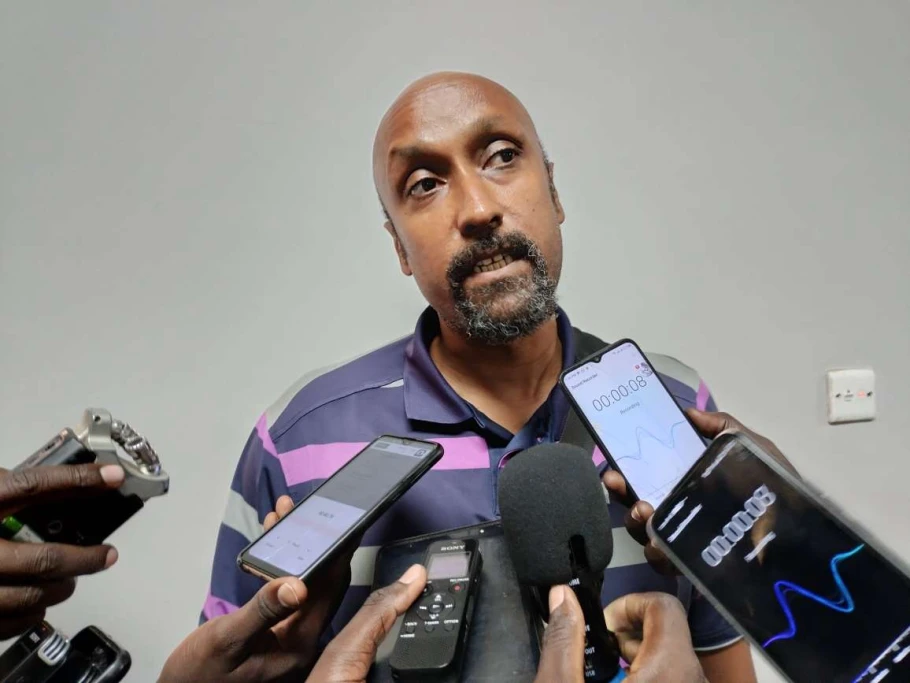
A South Sudanese Researcher and Human Right lawyer David Deng advised the Revitalized Transitional Government of National Unity to hold elections without the constitution in order to avoid unpredicted further extension of the peace deal.
However, despites the permanent constitution lacking in place; president Salva Kiir on several occasions promised that there will be no another transition after the current period of the Roadmap.
South Sudan was supposed to go for general elections in February 2023 according to the 2018 peace deal but the implementation of the task has been very slow in the last five years due to what has been majorly termed by the international community and peace guarantors as lack of political will from the principals.
In August 2022, the parties agreed and extended the transitional period for another 24 months that now make South Sudan expect its first ever general elections in December 2024.
With only 20 months left from now for the country to go for polls, crucial tasks prior to the conduct of elections are yet to be accomplished.
“The challenge with elections of course is that we try to lampoon so many things as prerequisites to elections whether census, unified forces, constitutions making process and at the end if these things don’t happen, we will be forced to make a decision. Do we prioritize elections or other things such as security?” Deng said
“My suggestion for the constitution making process is that we decouple from elections. Let’s not make elections contingent on having a constitution and let’s put this process to people who are in the midst of headed political campaigns,”
In December President Kiir signed into law the constitution Making Process Act 2022. The bill is the law that provides the legal framework of the National constitutional Review Commission (NCRC) and the constitution making processes.
South Sudan has been governed with the transitional constitution since it got its independence in 2011 but the 2018 peace deal which is the foundation of the current revitalized government of national unity provides for the making of a permanent constitution within the transitional period before the country holds its first general election.
The Constitutional Review committee was supposed to be formed within 45 days from the signing of the bill but Since the bill was signed into law by the president on 21st December, 2023, the committee has not yet been formed.
Weighing the time needed for the constitution to be in place and the time set for elections, experts said it’s not possible but said the process should continue and allow the elected government complete the process.
“Let’s begin the discussion now, engage people in the constitution making process, constitute NCRC, move ahead with the process but allow the adoption of the constitution to be done by government that has been elected, that has democratic legitimacy,” Deng advised
“The same constitution which has created our state since 2011 is the same constitution that will guide us until we have the permanent constitution whether that happen next year, in 2 or 3 years from now,”
Human right lawyer and researcher Mr. Deng said the question of the legal framework or the constitution is not what matters for South Sudan elections but a political question.
“I don’t think there is a legal question here but rather there is a political question. We want to entrust this process to people who are appointed through peace agreement or people who have been elected by citizens of South Sudan,”
In argument regarding the expert suggestion, an executive member of the South Sudan Law society, Farouk Ismael Ukach who works as Program coordinator of the society said going for elections without the constitution will be no work done in terms of governance and system of government.
“When we say let’s go for lections [without constitution], we are still maintaining the status for governance and nothing would have changed and everything will remain as it is,” Ukach said
“Let’s struggle hard to have something called a constitution in place, however good or bad it could be, it should guide us through the elections. We shall have room for amendments in the future. It’s always good to have a structure that will keep on breaking to make it perfect than having none that will guide you in the construction,”
According to Ukach, the current Transitional constitution sustains monopoly in the exercise of presidential powers which he said was what triggered the 2013 conflict.
“Article 101 has overwhelm everything,” He said “Let the constitution come into place to at least dehorn some of these horns that have overgrown within the constitution and some of the articles that have been overused,”
“…how article 101 came into place in terms of dismissing the elected officials and that kept on and on. It worsen and increased, and by so, that’s what triggered all our errors that happened in 2013,” Ukach added
Article 101 of the Transitional constitution of South Sudan spelled out the functions of the president which give him all powers to remove and appoint the national officials and state governors among other powers.